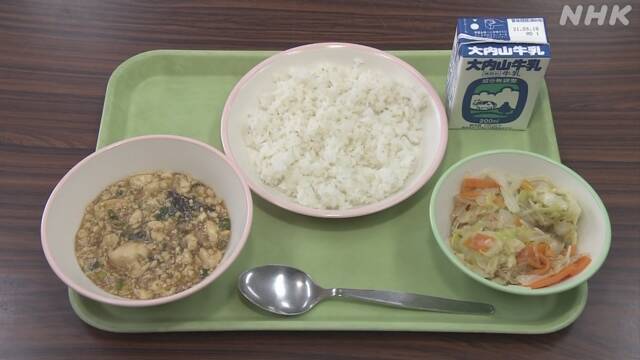As the infection of the new coronavirus spreads, at public elementary and junior high schools in Tsu City, Mie Prefecture, children who do not go to school at the discretion of each family or go home without eating lunch are one after another to avoid infection. It turned out that there was a surplus of school lunches for about 3,000 people a day, and most of them were discarded.
However, since it is necessary to order the ingredients in advance, it is difficult to deal with them on site.
Infection with the new coronavirus has spread, and a state of emergency has been declared in Mie Prefecture, but according to the Tsu City Board of Education, 68 public elementary and junior high schools in the city make decisions at home to avoid infection. It means that the total number of children who did not go to school or went home without eating lunch reached about 10,000 in the three days up to the 6th.
As a result, on many days, a total of about 3,700 school lunches were left over, and most of them were discarded.
Of these, at Yosei Elementary School in Tsu City, on the 8th, 21 people, or about 10% of all school children, did not go to school or went home without eating school lunch, and that amount of school lunch was left over. ..
According to the school, the number of children who need school lunch changes depending on the day, but depending on the food, the ingredients must be ordered 10 days in advance, so in principle, the amount for all school children must be made.
In addition, the surplus school lunch is said to be eaten more than usual by faculty members and children, but the amount of waste is still larger than usual.
Hiroshi Shimada, Principal of Yosei Elementary School, said, "Since it is one of the roles of the school to provide safe and secure meals, it is difficult to anticipate the number and reduce the amount of orders. It is safer, more secure and safer for children. I want to think about the ideal way of feeding without waste loss. "

